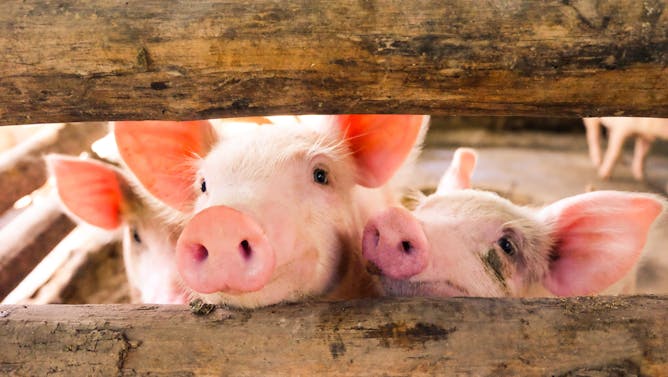|
|
|
Editor's note
|
|
When the US banned lead from petrol in the 1970s, it was eventually linked to a 56% reduction in crime, by the 1990s. Since then, evidence keeps mounting that exposure to air pollution actually does affect our behaviour – and that reducing it could help minimise crime. Gary Haq reviews the latest findings. Of course, air pollution isn’t the only thing that can influence individuals to take risks: risk-taking has a genetic basis.
It’s all change at the Daily Express, where new ownership looks set to have a diluting effect on the notoriously anti-immigration editorial line. Paul Broster was a reporter at the outlet before moving to academia, and thoroughly welcomes the new approach. And when it comes to immigration, a recent YouGov poll reveals that British adults take very different views of migrants from India compared to those from Pakistan and Bangladesh. Rakib Ehsan was intrigued and wanted to find out more.
Scientists have successfully reanimated the brains of dead pigs recovered from a slaughterhouse, leading to speculation that it might be possible to keep a human brain alive after the death of the body. But before you get too carried away at the possibility of eternal life, Benjamin Curtis believes there is the distinct possibility that such a procedure could leave a human mind trapped with no external stimuli or ability to interact with the outside world – surely a hellish prospect.
|
Emily Lindsay Brown
Editor for Cities and Young People
|

|
|
Top stories
|

Shutterstock.
Gary Haq, University of York
Pollutants can increase stress levels, which in turn affects judgment and makes some people more likely to commit crime.
|

Wolfgang Petrach/shutterstock
Emma Clifton, University of Cambridge; Felix Day, University of Cambridge; Ken Ong, University of Cambridge
Men who take risks are more likely to eat in response to unpleasant emotions.
|

Daily Express: a history of hostility towards migrants.
Liz Gerard
Paul Broster, University of Salford
Since it was acquired by Trinity Mirror the newspaper has new editor and a completely different attitude towards immigration.
|

Another life?
Shutterstock
Benjamin Curtis, Nottingham Trent University
Do you want to live forever? If so, you might want to think again.
|
Politics + Society
|
-
Rakib Ehsan, Royal Holloway
A survey of British adults shows they have different views on different Asian groups.
-
Eithne Dowds, Queen's University Belfast
Laws around the world continue to fail victims of rape and sexual abuse. It is time this, too, changed.
-
James Muldoon, University of Exeter; Robert Jackson, Manchester Metropolitan University
Marx's spectre still haunts everything from economics to politics to literature. Here's where to start if you want to know more.
-
Alan Wager, King's College London; Matthew Bevington, King's College London
What impact did Brexit have on the local election results?
|
|
Science + Technology
|
-
Monideepa Tarafdar, Lancaster University
Six things you can do to control your social media addiction.
-
Derek Hodgson, University of York; Paul Pettitt, Durham University
Figurative art may derive from Neanderthal hand prints and the hunter's keen eye for perceiving animals.
|
|
Arts + Culture
|
-
Thomas Kaiserfeld, Lund University
The long and turbulent history of the Nobel Prize for Literature continues.
|
|
Business + Economy
|
-
Vincenzo Bove, University of Warwick
The connection between oil and arms trade is not a conspiracy theory.
|
|
Environment + Energy
|
-
Paula Serafini, University of Leicester
As companies and governments attempt to intensify extraction, cultural resistance offers a space for imagining alternative futures.
|
|
Health + Medicine
|
-
Mackenzie Graham, University of Oxford
The FDA recently issued a draft guidance for testing drugs in pregnant women. Here's why it's a good thing.
|
|
| |
Featured events
|

|
Fabric District, London Road, Liverpool, Liverpool, L3 8HL, United Kingdom — Liverpool John Moores University
|

|
G11, Henley Business School, Whiteknights campus, University of Reading, Reading, Reading, RG6 6AH, United Kingdom — University of Reading
|

|
Claverton Down Road, Bath, Bath and North East Somerset, BA2 7AY, United Kingdom — University of Bath
|

|
Bowland Auditorium, Berrick Saul Building, York, York, YO10 5DD, United Kingdom — University of York
|
|
|
|
| |
| |
| |
| |
| |
|
|
|
|
|
|
|